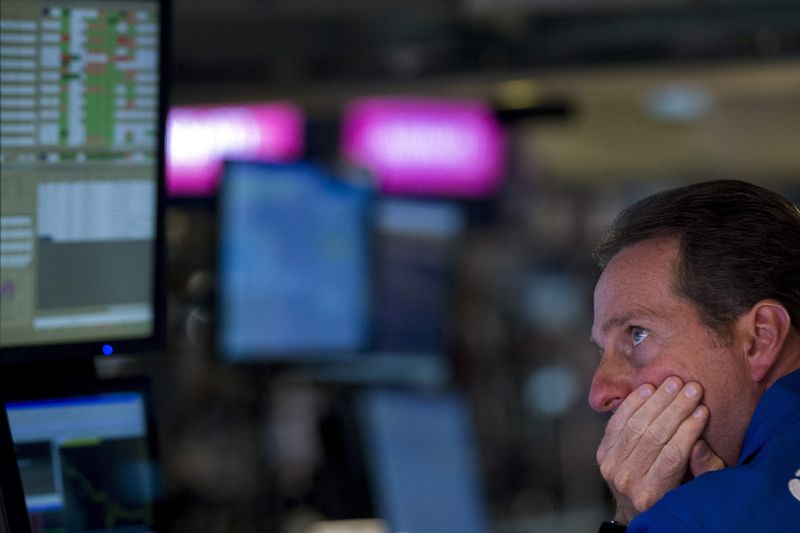* Abe resigns on health grounds; yen jumps
* Investors say lack of detail on Fed policy shift
* U.S. oil prices little moved by massive storm
* Graphic: 2020 asset performance http://tmsnrt.rs/2yaDPgn
* Graphic: World FX rates in 2020 http://tmsnrt.rs/2egbfVh
By Tommy Wilkes
LONDON, Aug 28 (Reuters) - Stock markets struggled for direction on Friday as investors worried about a lack of detail in the U.S. Federal Reserve's policy shift while Japanese markets were roiled as Prime Minister Shinzo Abe resigned for health reasons.
The Fed's widely-awaited shift in its policy framework, unveiled on Thursday, saw the central bank place more emphasis on boosting economic growth and less on worries about letting inflation run too high. The policy aims for 2% inflation on average so that too low a pace would be followed by an effort to lift inflation "moderately above 2% for some time." initially jolted higher as investors bet interest rates would remain low for longer and more stimulus was likely.
But share markets have since been choppy, with some traders disappointed that the Fed did not reveal more details about how the new framework will work or provide any clues as to what it will do at its next policy meeting.
"It's not so much about what to do about inflation when it comes but about getting inflation above target. The challenge is to get inflation up to target and not very much was said about that," said Colin Asher, a senior economist at Mizuho.
The Euro STOXX 50 .STOXX50E recovered from earlier losses and was last up 0.03%, while Germany's DAX .GDAXI slid 0.49%. Britain's FTSE 100 .FTSE was 0.4% higher.
U.S. stock futures clawed their way higher and back to near record levels after earlier volatile trading on concern about the impact of a hurricane that struck the centre of the U.S. oil industry. S&P 500 e-mini futures was were last up 0.34% ESc1 .
Japanese shares dropped, with the Nikkei 225 .N225 down 1.4%. Abe resigned on Friday because of a chronic health condition, saying he would stay as prime minister until a new leader was appointed. has been speculation about his health all week. shares outside of Japan limped higher, with the MSCI's broadest index of Asia-Pacific shares outside Japan .MIAPJ0000PUS gaining 0.19%.
"This is a negative for Japanese stocks because it raises questions about what polices come next. We do see the familiar pattern of falling stocks pushing up the yen," said Junichi Ishikawa, senior foreign exchange strategist at IG Securities in Tokyo.
The yen, seen as a safe-haven currency to buy in times of uncertainty, jumped 0.4% to 106.12 yen per dollar JPY=EBS .
Elsewhere in currency markets the dollar dropped 0.6% against a basket of other currencies =USD>.
The greenback has fallen sharply since June as many analysts are predicting more pain ahead given U.S. rates are likely to stay low for longer and the political uncertainty before the U.S. presidential election in November.
The euro seized on the dollar's weakness to gallop another 0.7% higher and was last at $1.1905 EUR=EBS , close to a more than two-year high it recently touched.
The 10-year U.S. Treasury US10YT=RR yield rose to as high as 0.789%, the most since June 10, which caused the yield curve to steepen, reflecting the Fed's tolerance for higher inflation. It was last at 0.7671%, still up 2 basis points on the session.
Crude oil prices dipped as a massive storm raced inland past the heart of the U.S. oil industry in Louisiana and Texas without causing any widespread damage to refineries.
Brent crude LCOc1 fell 0.47% to $44.88 a barrel. U.S. West Texas Intermediate (WTI) crude CLc1 dropped 0.49% to $42.83 per barrel. prices bounced 1%, with the spot price at $1,949 an ounce. The precious metal tends to perform well when the dollar is weak and the U.S. central bank sends a dovish message on the future path of interest rates. Emerging markets
http://tmsnrt.rs/2ihRugV
^^^^^^^^^^^^^^^^^^^^^^^^^^^^^^^^^^^^^^^^^^^^^^^^^^^^^^^^^^^>
